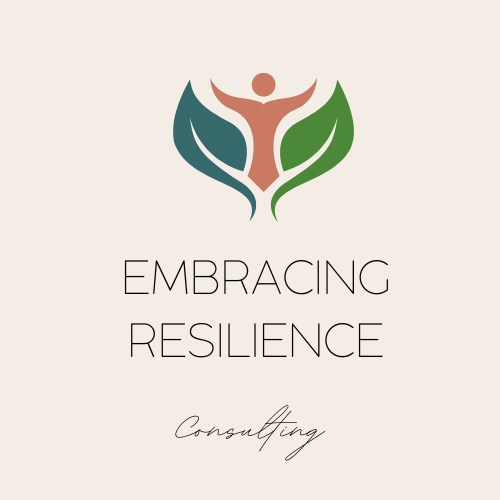Transformative mental health and educational consultation for the community.
A Deeper Look at Loneliness: Understanding and Overcoming a Modern Epidemic
Understanding and Overcoming a Modern Epidemic

Loneliness, an emotion that we've all experienced at some point in our lives, is now a pervasive issue in our society. Alarmingly, one in two adults in the United States report feelings of loneliness, a statistic that has been exacerbated by the isolation brought about by the recent pandemic.
Our emotional proximity to others paints a similar picture. A 2022 study revealed that only 39% of adults in the U.S. feel very connected to others emotionally. This, coupled with the alarming rates of loneliness among young adults, underscores the urgent need to address this issue. Yet, despite such prevalence, loneliness remains an under-recognized problem.
Humans, throughout history, have relied heavily on social connections for survival. This reliance has not only evolved from a necessity - like food, water, and shelter - but has also been ingrained into our biological wiring. Our modern lifestyle may have made it possible to live without engaging with others, but the underlying biological need for social connection still persists.
The Multifaceted Nature of Loneliness
Loneliness and social isolation, while related, are not identical. Social isolation refers to having limited social relationships, roles, group memberships, and infrequent social interaction. Loneliness, on the other hand, is a more subjective and distressing experience stemming from perceived isolation.
Several factors can contribute to these feelings of loneliness. The breakdown of community and family structures, the rise of busy lifestyles, and our evolving relationship with technology all play a part. Life-altering events, such as relocating to a new city, suffering a loss, or experiencing trauma, can further exacerbate feelings of isolation.
The Impact of Technology on Loneliness
Technology, especially digital media and social platforms, has become pervasive in our lives. The majority of adults and teens in the U.S. have embraced these technologies, spending an average of six hours per day on digital media. For all its benefits, technology can also have harmful effects, especially when it displaces in-person engagement, monopolizes attention, and reduces the quality of our interactions. For instance, excessive use of social media has been linked to feelings of increased loneliness and social isolation.
The digital landscape has seen a significant increase in usage over the years, with approximately one-third of U.S. adults aged 18 and over indicating they are online almost incessantly. The percentage of teens, specifically between the ages of 13 and 17 who report being online almost constantly, has seen a near doubling since 2015. Shifting the focus to social media, it's observed that there has been a substantial uptick in usage among U.S. adults aged 18 and over, with the percentage soaring from a mere 5% in 2005 to an impressive 80% in 2019. Turning to the younger demographic, as of 2022, a staggering 95% of teens aged 13 to 17 reported usage of social media, with over half stating it would be difficult to refrain from using social media channels. However, it's important to note that while technology adoption remains high across various demographics, there is a lingering digital divide. Americans with disabilities, adults with lower income, and individuals from rural regions continue to face challenges in digital access, with these groups being less likely to own computing devices such as a computer, smartphone, or tablet or have stable broadband internet access.
The pervasive use of technology can inadvertently disrupt personal connections, monopolize our attention, degrade the quality of our interactions, and negatively impact our self-esteem, potentially leading to heightened sensations of loneliness, fear of missing out, and reduced social bonds. This is exemplified by frequent mobile usage during in-person interactions, such as between parents and children or among friends, which often results in increased distractions, diminished conversation quality, and decreased enjoyment of shared moments. According to a study conducted in the U.S., those who reported more than two hours of social media usage daily were twice as likely to experience feelings of social isolation compared to those who spent less than half an hour on these platforms each day. Moreover, victims of online harassment often experience elevated feelings of loneliness, isolation, and relationship complications, along with decreased self-esteem and trust in others.
The Toll of Loneliness
The effects of loneliness can seep into our physical and mental health, increasing the risk of premature death, heart disease, and stroke, as well as mental health conditions like depression and anxiety. Lack of social connection can also make us more vulnerable to viruses and respiratory illnesses. In essence, loneliness affects our well-being and longevity at multiple levels.
Depression and anxiety are often characterized by social withdrawal, which increases the risk for both social isolation and loneliness; however, social isolation and loneliness also predict an increased risk for developing depression and anxiety and can worsen these conditions over time. A systematic review of multiple longitudinal studies found that the odds of developing depression in adults are more than double among people who report feeling lonely often, compared to those who rarely or never feel lonely. Furthermore, in older adults, both social isolation and loneliness have been shown to independently increase the likelihood of depression or anxiety. These findings are also consistent among younger people. A review
of 63 studies concluded that loneliness and social isolation among children and
adolescents increase the risk of depression and anxiety, and this risk remained
high even up to nine years later.
Overcoming Loneliness
Loneliness, though a challenging issue to grapple with, is not insurmountable. Recognizing and accepting our feelings of loneliness is the crucial first step in this journey, rather than attempting to disregard or suppress them. Once we have acknowledged these feelings, a world of connectivity awaits through avenues such as participation in social clubs, volunteering for causes close to our hearts, or immersing ourselves in community events. Prioritization of self-care is paramount and encompasses aspects like regular exercise, balanced nutrition, and engagements in activities that cater to our physical and mental wellness. Ultimately, if loneliness continues to pose significant challenges, seeking assistance from professionals in the form of therapy or counseling can be a powerful tool in our fight against isolation.
Building and Maintaining Connected Communities
Optimizing our ability to navigate the complexities of relationships is a crucial strategy in combating loneliness. This involves fostering empathy and understanding in our interactions, wholeheartedly and actively listening to the experiences and perspectives of others, and extending kindness and generosity. Importantly, laying out clear boundaries is vital to prevent our relationships from turning toxic or causing emotional exhaustion. Healthy communication, mutual support, and respect are the cornerstones on which we can build enduring and fulfilling connections.
Moreover, an individual's sense of social connection extends beyond just the count of personal relationships. It encompasses a network of interactions and relationships that can be categorized under three critical components: structure, function, and quality. Structure refers to the quantity, diversity (ranging from coworkers, friends, family, to neighbors), and interaction frequency with others. Function denotes the degree of reliability and support you can expect from your relationships. Lastly, quality signifies the positive, beneficial, and satisfying nature of relationships contrasting the negative, unhelpful, or unsatisfying ones. Each of these components is instrumental in influencing our health and overall well-being. A multifaceted approach to social connection involves not only personal interactions and relationships but also roles and a sense of belonging within larger communities or societies.
The Power of Human Connection
Ultimately, overcoming loneliness involves realizing that we are all fundamentally connected to each other. We may have different cultural backgrounds, beliefs, and interests, but we all share a common humanity and a need for connection. By recognizing and embracing this interconnectedness, we can move past loneliness and build strong, fulfilling relationships with others.
Conclusion
The loneliness epidemic is a significant social issue that affects millions of people around the world. However, it's important to remember that we have the power to overcome these feelings and build meaningful connections with others. By acknowledging our emotions, prioritizing self-care, and prioritizing healthy relationships, we can break free of the loneliness cycle and live a happier, more connected life.



